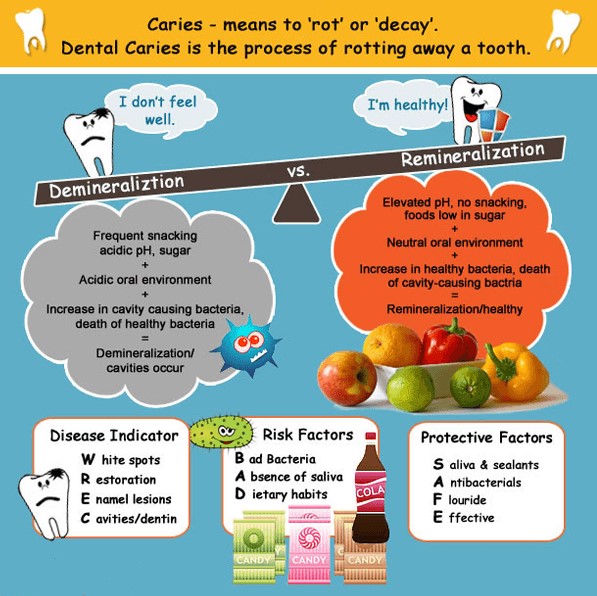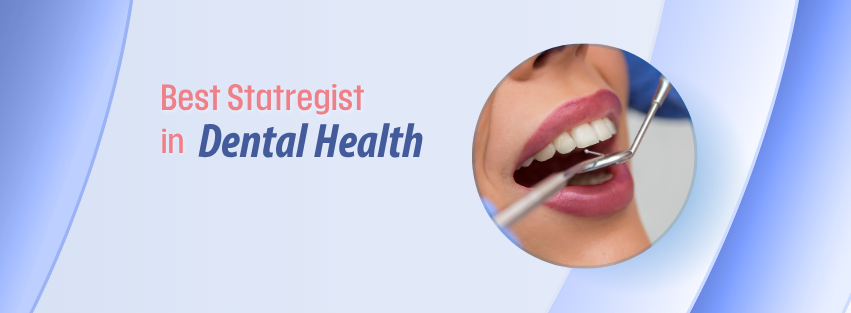
The foods most likely to promote dental caries: Understanding the risks.
Maintaining dental health is essential, yet many of us may unknowingly consume foods that can promote dental caries, commonly known as cavities. It’s crucial to understand which foods contribute to this problem. Here’s a closer look at some of the most significant offenders when it comes to dental caries.
High-Sugar foods:
One of the biggest culprits for promoting dental caries is sugary foods. When you eat sweets, the sugar interacts with the bacteria in your mouth. This interaction produces acid, which can erode tooth enamel and lead to cavities. Here are some common high-sugar offenders:
- Candy, including gummies and hard candies
- Cookies and cakes
- Sugary cereals
- Sodas and sweetened beverages
Sticky foods:
Foods that stick to your teeth can be particularly damaging. They prolong the exposure of teeth to sugar and acid. Pay attention to these sticky options:
- Dried fruits like raisins and apricots
- Fruit rolls or fruit snacks
- Caramels and toffees
These foods can linger on teeth even after brushing, creating the perfect environment for cavity-causing bacteria.
Starchy foods:
Another group that often flies under the radar is starchy foods. When starchy snacks, such as chips or bread, are consumed, they break down into sugars in your mouth. This breakdown can lead to cavities. Consider the following starchy items:
- Potato chips
- White bread
- Pasta
While these foods can be part of a balanced diet, overindulgence can increase the risk of dental issues.
Beverages to Be Wary Of Not all drinks are created equal when it comes to dental health. Acidic and sweetened beverages can wear down tooth enamel. Here are some drinks you might want to limit:
- Soft drinks
- Energy drinks
- Fruit juices with added sugars
These beverages might seem refreshing, but they may be doing more harm than good to your teeth.
The impact of oral hygiene:
While it’s essential to be aware of the foods that can promote dental caries, it’s equally important to consider how your brushing and flossing habits play a role.
Even if you consume some cavity-promoting foods, regular brushing and flossing can significantly reduce the chances of developing cavities. Make sure to brush your teeth twice a day with fluoride toothpaste and floss daily.
Alternative snack options:
If you’re looking for healthier alternatives, consider these tooth-friendly snacks:
- Fresh fruits and vegetables
- Cheese, which can help neutralize acids
- Nuts, which are low in sugar
These choices not only taste great but also support better dental health.
How Sugar works: The key player in tooth decay?
Dental health is crucial not just for maintaining a bright smile but also for overall health. Understanding the role of sugar in promoting tooth decay is vital in safeguarding your teeth.
When you consume sugar, it interacts with the bacteria in your mouth, and this can lead to issues like dental caries, commonly known as cavities.
Tooth enamel, the outer protective layer of your teeth, is highly susceptible to acids produced by bacteria. These acids form when the bacteria break down sugars and carbohydrates. Here’s a closer look at how sugar acts as a catalyst for tooth decay:
How bacteria and sugar interact?
When you eat sugary foods, the bacteria naturally present in your mouth feed on those sugars. As they digest these carbohydrates, they produce acid as a waste product. This acid is what begins to erode the enamel on your teeth. Over time, this erosion can lead to cavities. It’s a simple chain reaction: sugar feeds bacteria → bacteria produce acid → enamel decays.
Which foods contain high sugar levels?
Being aware of the types of foods that are high in sugar can help you make better dietary choices. Here’s a list of common culprits that may promote dental caries:
- Sugary Snacks: Candy, cookies, and cakes are loaded with sugar and can linger on your teeth.
- Sodas and Sweetened Beverages: These drinks are not only sugary but often acidic, further damaging enamel.
- Fruit Juices: While they may seem healthy, many fruit juices contain added sugars.
- Processed Foods: Many snacks like chips and certain cereals contain hidden sugars.
- Sticky Foods: Items like gummy candies or caramel can cling to your teeth, increasing the duration that sugar is in contact with your enamel.
The role of frequency:
It’s not just the amount of sugar you consume but also how often you consume it that impacts your dental health. Frequent snacking on sugary foods keeps the acid production ongoing. Your mouth needs time to neutralize these acids and repair enamel. If you keep introducing sugar, you’re stunting your mouth’s natural protection process.
Protecting your teeth from sugar damage:
While it may be impossible to completely avoid sugar, there are ways to minimize its effects on your teeth:
- Limit Sugar Intake: Try to eat sweets in moderation and consider healthier alternatives.
- Choose Healthy Snacks: Opt for crunchy fruits and vegetables that can help clean your teeth.
- Practice Good Oral Hygiene: Brush at least twice a day and floss daily to remove plaque and food particles.
- Drink Water: Rinse your mouth with water after consuming sugary foods to help dilute acids.
- Visit the Dentist Regularly: Regular check-ups can help catch early signs of decay and keep your mouth healthy.
Understanding acids and remineralization:
The acids produced by bacteria are not the only thing to consider. Your saliva plays an essential role in combating tooth decay. Saliva helps wash away food particles and neutralizes acids, contributing to remineralization of enamel. This natural process can repair enamel damage if the balance between acid and saliva remains stable.
The role of acidity in food: Impact on dental health.
When you think about dental health, the acidity of the food you consume plays a pivotal role. Foods with high acidity can lead to a myriad of dental concerns, notably cavities.
You might be wondering, where does acidity come into play and how does it affect your teeth? Let’s delve deeper into the relationship between food acidity and dental health.
The pH level of food is crucial. Foods with a low pH are considered acidic, while those with a high pH are alkaline. To maintain healthy teeth, it is important to minimize the intake of acidic foods. Here are some common categories of acidic foods that can impact your dental health:
- Citrus Fruits: Fruits like oranges, lemons, and grapefruits, while rich in vitamins, have high acidity levels. Their natural acids can erode enamel, the protective layer of your teeth.
- Sour Candies: Candies that are sour often contain citric acid or other acidic flavorings. These can stick to teeth and prolong exposure to acids, increasing the risk of cavities.
- Soft Drinks: Many sodas are not only sugary but also have high acidity. The combination of sugar and acid creates an environment conducive to tooth decay.
- Wine: Both red and white wines can interfere with the enamel on your teeth due to their acidity. Moderation is key!
- Vinegar: Balsamic vinegar and other salad dressings can be flavorful but are often acidic enough to damage enamel if consumed excessively.
Understanding acidity is vital for anyone looking to maintain good dental health. But how does acidity actually contribute to dental caries? When acidic foods enter your mouth, they begin to interact with your saliva, leading to a drop in pH. When the pH level in your mouth is lower than 5.5, enamel starts to demineralize. This process exposes the softer, more vulnerable layers of your teeth to bacteria and decay.
Notably, exposure time is critical. If acidic food is consumed frequently or kept in the mouth for a prolonged period, the chances of enamel erosion increase significantly. This is why it’s essential to not only limit the intake of acidic foods but also to act quickly to neutralize the acidity after consumption.
How can you protect your teeth from the effects of acidity? Here are some helpful strategies:
- Rinse Your Mouth: After consuming acidic foods or drinks, rinse your mouth with water. This helps to neutralize the acids and wash away food particles.
- Use a Straw: If you must drink acidic beverages, consider using a straw to minimize contact with your teeth.
- Wait Before Brushing: After eating acidic foods, wait for at least 30 minutes before brushing your teeth. This allows your enamel to reharden and reduces the risk of damage from brushing on weakened enamel.
- Chew Sugar-Free Gum: Chewing gum stimulates saliva production, which can help neutralize acids and strengthen enamel.
- Choose Less Acidic Options: Instead of consuming highly acidic fruits, try opting for bananas or melons that are less likely to harm your teeth.
Being aware of what you eat is crucial in maintaining your dental health. Instead of focusing solely on the sweetness of your favorite snacks or drinks, think about their acidity levels too.
The key to good dental hygiene is finding a balance. Enjoying acidic foods in moderation while taking steps to protect your enamel can help in preserving your smile long-term.
Common snacks that can damage your teeth:
When it comes to snacking, many people don’t realize that some of their favorite treats can be detrimental to their dental health. Eating snacks that are high in sugar, acidity, or are sticky can promote dental caries, also known as cavities.
1. Sugary Snacks:
Foods that are rich in sugar are a leading cause of tooth decay. When you consume sweets, the bacteria in your mouth feed on the sugars and produce acid. This acid can erode tooth enamel, making your teeth more susceptible to cavities. Common sugary snacks include:
- Candy bars
- Gummy candies
- Chocolate
- Cookies and cakes
- Soda and sugary drinks
When indulging in these treats, try to minimize their effect by drinking water afterward or chewing sugar-free gum to help cleanse your mouth.
2. Acidic Foods
Foods that have high acidity can weaken enamel and leave your teeth vulnerable. While they might be tasty, their long-term effects on your teeth can be harmful. Examples of acidic foods include:
- Citrus fruits like oranges, lemons, and grapefruits
- Pineapple
- Pickles and other vinegar-based snacks
- Tomato-based sauces
To protect your teeth while enjoying these snacks, rinse your mouth with water afterward or wait at least 30 minutes before brushing your teeth. Brushing immediately after consuming acidic foods can actually cause more damage by scrubbing away weakened enamel.
3. Sticky Snacks
Many people love snacking on food that sticks to their teeth, but these can create problems. Sticky snacks have a tendency to cling to teeth and prolong sugar exposure, making it easier for cavities to form. Some notable sticky snacks include:
- Dried fruits like raisins and apricots
- Caramel and taffy
- Honey and syrups
- Fruit leathers
When enjoying these snacks, try to pair them with water or teeth-cleansing foods like apples or carrots. These help to scrub away some of the residue left behind.
4. Starchy Foods
A surprising contributor to tooth decay is starchy snacks. Foods like chips and crackers can break down into sugar in your mouth and feed bacteria. Some common starchy foods to watch out for include:
- Potato chips
- White bread and rolls
- Crackers
- Pasta
Opt for healthier alternatives, such as whole grain versions, which may have less impact on your dental health.
5. High-Carbohydrate Snacks
High-carb snacks, while sometimes seen as innocent, can be damaging to your teeth just like sugary treats. These foods can get lodged between teeth and are not easily washed away. Examples include:
- Granola bars
- Cereal bars
- Bagels
- Soft pretzels
Rinse with water after consuming these snacks, and consider carrying a travel toothbrush for a quick clean when you can.
Nutritional strategies to combat dental caries: What to eat instead?
Maintaining good oral health is essential, and your diet plays a significant role in preventing dental caries. While some foods make you more prone to cavities, others can help combat them effectively.
Several types of foods can encourage the growth of dental caries. Sugary snacks, starchy foods, and acidic beverages can lead to tooth decay. But knowing what to substitute these with can make a big difference. Here are some great alternatives you can include in your diet to fight dental caries:

1. Hard Cheese:
Hard cheese, like cheddar, gouda, or parmesan, is fantastic for your teeth. These cheeses are rich in calcium and phosphate, minerals essential for tooth enamel. The act of chewing cheese also encourages saliva production, which helps wash away food particles and neutralizes acids in your mouth.
2. Leafy Greens:
Leafy greens like kale, spinach, and Swiss chard are packed with essential nutrients and are low in sugar. They contain calcium and other vitamins that support overall dental health. Additionally, their fibrous texture helps clean teeth naturally when you chew.
3. Crunchy Fruits and Vegetables:
Fruits and vegetables that are crunchy, such as apples, carrots, and celery can be great for your teeth. Their fibrous nature helps scrub the surface of your teeth, removing plaque and debris as you eat. Apples, in particular, stimulate saliva production, which is the mouth’s natural defense against cavities.
4. Nuts and Seeds:
Nuts and seeds are excellent munching options that offer healthy fats and proteins. Almonds, walnuts, and sunflower seeds contain important nutrients that protect your teeth and gums. Plus, they encourage chewing, which produces saliva that helps maintain a balanced pH in your mouth.
5. Yogurt and Dairy Products:
Dairy products like yogurt are rich in probiotics, beneficial bacteria that your mouth needs. They help keep harmful bacteria at bay and promote a healthy oral microbiome. Look for plain yogurt, as flavored varieties often have added sugars that could promote dental caries. Both yogurt and other dairy products also provide calcium to help strengthen your teeth.
6. Green Tea:
Green tea is an excellent beverage choice for dental health. It contains compounds called catechins, which have antibacterial properties. Drinking green tea may help reduce the growth of harmful bacteria in your mouth, thus lowering the risk of cavities.
7. Whole Grains:
Switching from refined grains to whole grains can make a significant difference in oral health. Whole grains like quinoa, brown rice, and oats lack the added sugars found in many processed snacks and are loaded with fiber, making them better for your teeth. Fiber-rich foods support healthy gums and help clean teeth as you chew.
8. Extra Virgin Olive Oil:
Adding healthy oils, such as extra virgin olive oil, to your diet can also be beneficial. Olive oil has anti-inflammatory properties and may help combat oral diseases. Using it for cooking or as a salad dressing can be a simple way to enhance your overall health.
Conclusions:
Recognizing which foods can lead to dental caries is essential for maintaining a healthy smile. The interplay between sugar and tooth decay highlights the need for vigilance in your diet. Sugar acts as a prime fuel for harmful bacteria in the mouth, leading to the formation of acids that erode tooth enamel.
Additionally, the acidity of certain foods can exacerbate the risk of dental damage, making it crucial to be mindful of what you consume.
To counteract the effects of these harmful foods, opt for nutritional strategies that promote oral wellness. Foods rich in calcium and phosphate, such as dairy products and leafy greens, can strengthen enamel.
Crunchy fruits and vegetables, like apples and carrots, can naturally clean your teeth as you eat. Staying hydrated and choosing sugar-free alternatives will also support healthier oral conditions.
